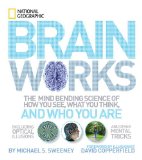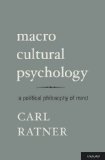new book – ‘Brainworks: The Mind-bending Science of How You See, What You Think, and Who You Are’ from National Geographic
September 6, 2011
Brainworks: The Mind-bending Science of How You See, What You Think, and Who You Are by Michael S. Sweeney (National Geographic, 2011)
Book description from the publisher:
Admit it. When you hear the word “neuroscience,” you expect something abstract and remote, very complex, of little practical value. But this time…it’s personal.
In a highly anticipated, three-part series airing on the National Geographic Channel in Fall 2011, National Geographic’s Brainworks makes YOU the test subject in an array of astonishing challenges and experiments. Your brain will be stimulated, fooled, and ultimately amazed, as scientists and other experts show you how this three-pound blob of gray matter effectively makes you, you.
The television program brings together a crack team of scientists and researchers from a wide range of fields, including neurology, psychology, and opthamology. Awareness expert Dan Simons and memory expert Elizabeth Loftus are just two of the notables who lend their considerable brainpower to this unprecedented project. The program also draws on the know-how of those who traffic in brain tricks—illusionists such as David Copperfield and Apollo Robbins and artists such as color expert Beau Lotto—to bring each mind-bending illusion to life.
The captivating companion book further messes with your head through the visual illusions discovered and perfected by masters of fine art as well as through deceptively simple illustrations that are finely crafted by psychologists to highlight the way we take in and process the world around us.
In three sections—”Seeing,” “Thinking,” and “Being”—you’ll see for yourself why these visual illusions and experiments hoodwink the brain. You’ll find out how the structure of the eye influences what you see. And you’ll think of events that may not have actually happened, in order to learn how the mind can create a false memory.
Rather than simply displaying a collection of puzzlers or visual illusions, each chapter guides you through a series of perceptual and thought experiments firsthand and then walks you through your brain’s reaction in clear, user-friendly language—providing every reader with a compelling personal interest in finding out why his or her mind acts the way it does.
Smart, exciting, and deeply engaging, Brainworks pulls you in, manipulates your mind, and leaves you with a better understanding—as well as a richer appreciation—of the mental marvels that we take for granted.
More new releases for Tues 9/6 – The Big Idea: How Breakthroughs of the Past Shape the Future by Timothy Ferriss (National Geographic, 2011) — (amazon.co.uk – 13 Oct)
The Two-Second Advantage: How We Succeed by Anticipating the Future–Just Enough by Vivek Ranadive and Kevin Maney (Crown Business, 2011) — (kindle ed.) — (amazon.co.uk )






